Best bass strings: Electric and acoustic bass strings encompassing every tone and budget
Breathe some fresh life into your bass with our pick of the best bass strings on the market
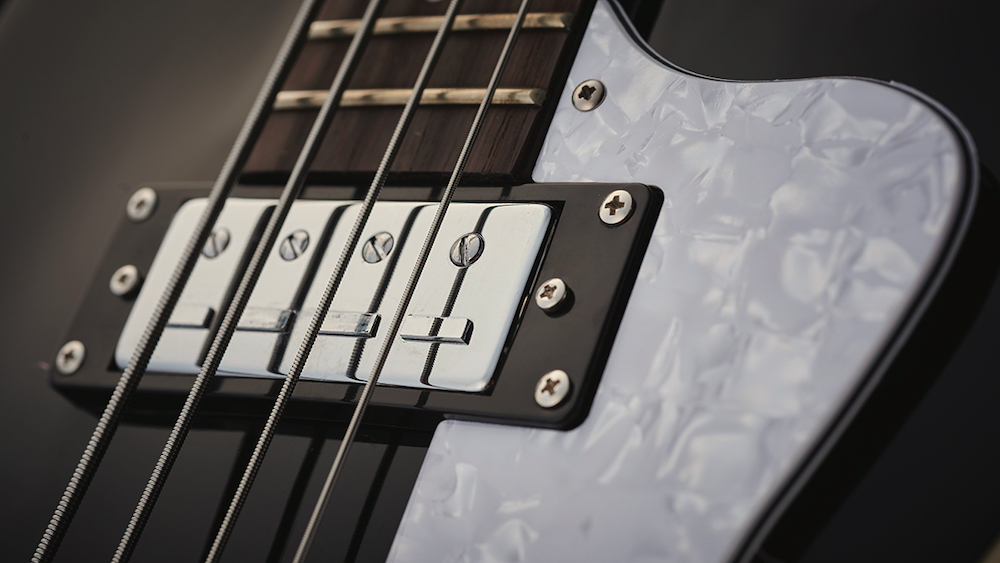
Want all the hottest music and gear news, reviews, deals, features and more, direct to your inbox? Sign up here.
You are now subscribed
Your newsletter sign-up was successful
Although it’s true that bass strings last longer than standard guitar strings, I believe it’s important for the upkeep of your bass to regularly fit it with a fresh set. Not only do regular string changes help keep your bass healthy, but new strings can breathe fresh life into your tone, too.
But, I hear you ask, what are the best bass strings for you? After all, bass guitars come in a wide variety - long scale, short scale, fretless, acoustic, you name it - and the musicians who play these instruments are just as diverse, with styles ranging from acoustic folk to extreme metal
However, don’t panic, as I’ve compiled a handy list of the best bass guitar string sets currently available, that myself and my MusicRadar colleagues have personally played. My guide takes into account the different tones that players are after, alongside considerations for playability, longevity and budget. The right choice will help shape the tone that you’re going for and will be comfortable for you to play.
So, whether you’re a fresh-faced beginner looking to perform your first restring or an experienced bass journeyman looking to inject some inspiration into your playing, there will be something on my list to suit you. With something like choosing strings, it can be easy to just pick the cheapest or most convenient option, but by doing just a bit of research, you’ll find a set that will complement your sound and playing style.
Right now our top recommendation for most modern styles is the Ernie Ball Regular Slinky. They’re affordable and fit perfectly for most pro and rock players. If budget is your biggest concern, Fender’s 7250M Roundwound are our current top pick.
Best modern
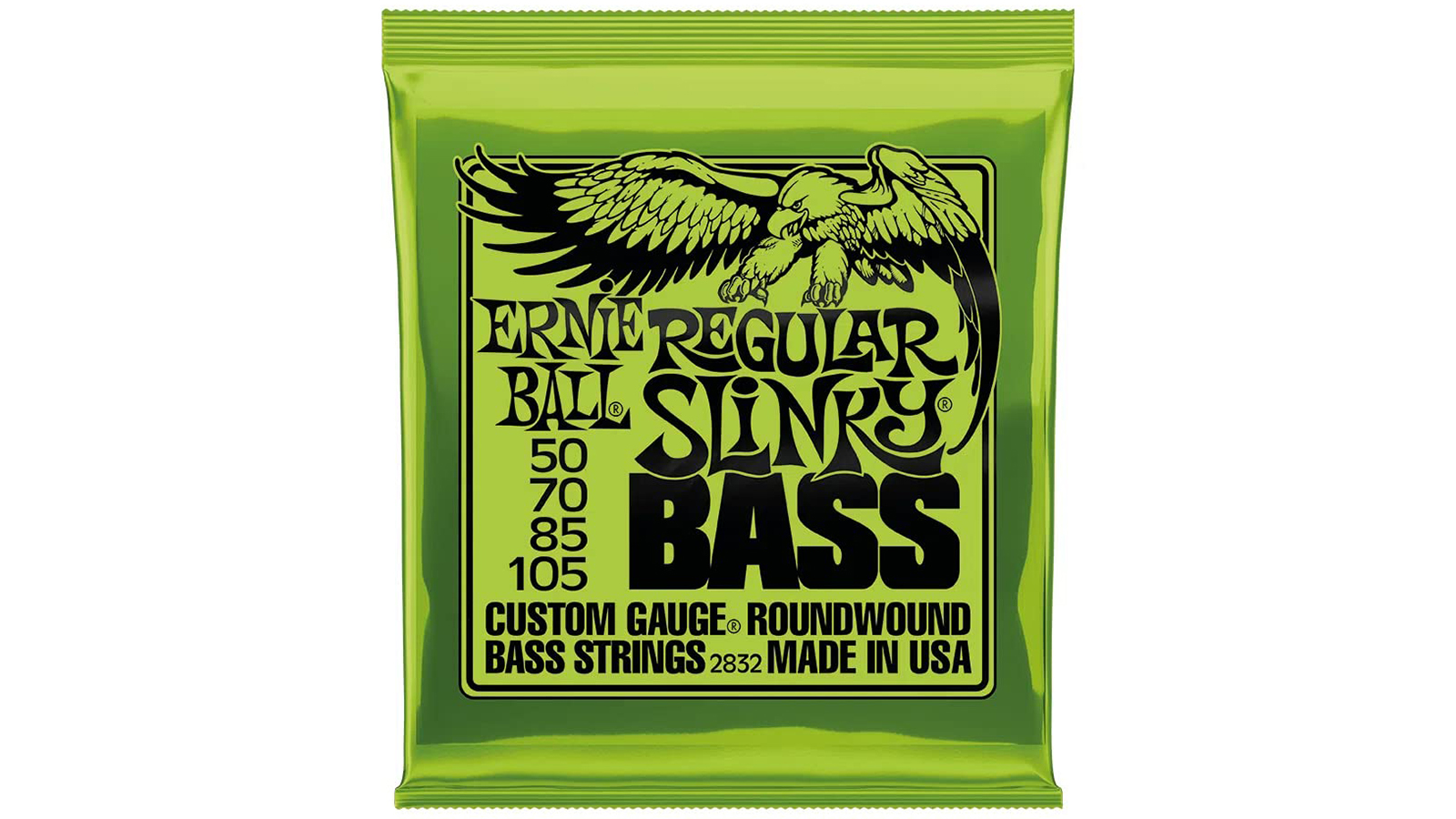
1. Ernie Ball Regular Slinky Nickel Bass
Our expert review:
Specifications
Reasons to buy
Reasons to avoid
Ernie Ball’s Regular Slinky Nickel Bass are a classic set of strings, used by countless pros the world over. You might say they’re something of an industry standard. Renowned for their contemporary sound with growling lows and a bright top end, these Slinkys are best suited to modern rock, pop and metal, rather than warmer vintage tones. I've found they lend themselves well to slap, too.
If you’ve never restrung your bass guitar before, this set of Ernie Balls is a solid starting point; bright, but not overly so, they’re a great low to mid-price string and a benchmark to assess other strings by. In my opinion, these are a decent buy!
Best beginner
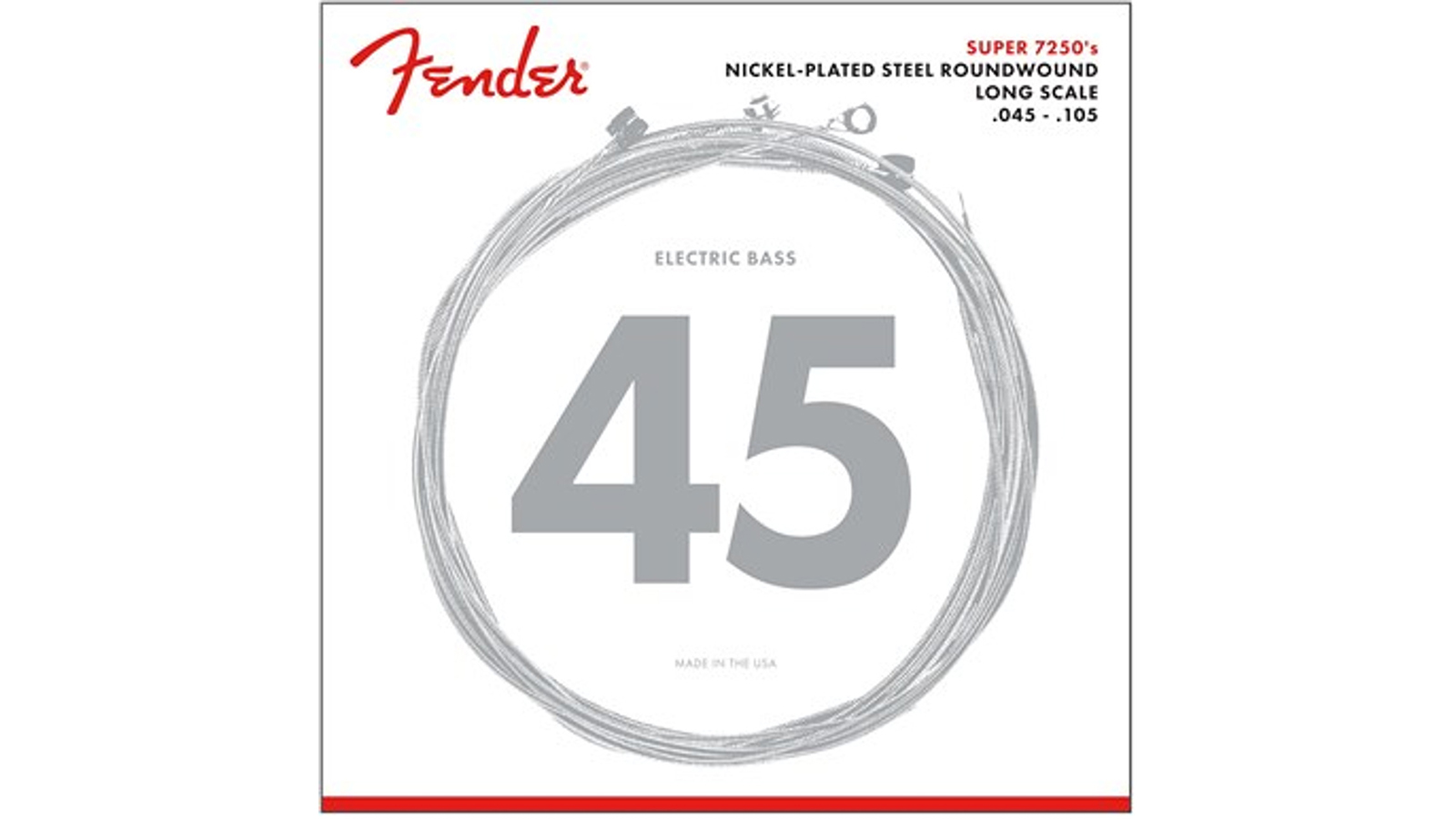
2. Fender 7250M Roundwound
Our expert review:
Specifications
Reasons to buy
Reasons to avoid
In my opinion there’s really very little to dislike about the Fender 7250M bass guitar strings. As budget options, I think these Fender strings feel great, last a respectable amount of time and settle into a ‘sweet spot’ after a few days. Initially I found them to be quite bright and trebly, but the 7250Ms settled down after a few plays and started to sound a lot more rounded.
I have no complaints about the overall feel or playability of these Fender strings and the small price certainly doesn’t reflect the build quality. The 7250M’s will suit most modern music but will particularly feel right at home playing rock or pop, though vintage tone aficionados may want to skip past and find something a little mellower.
Best flatwound
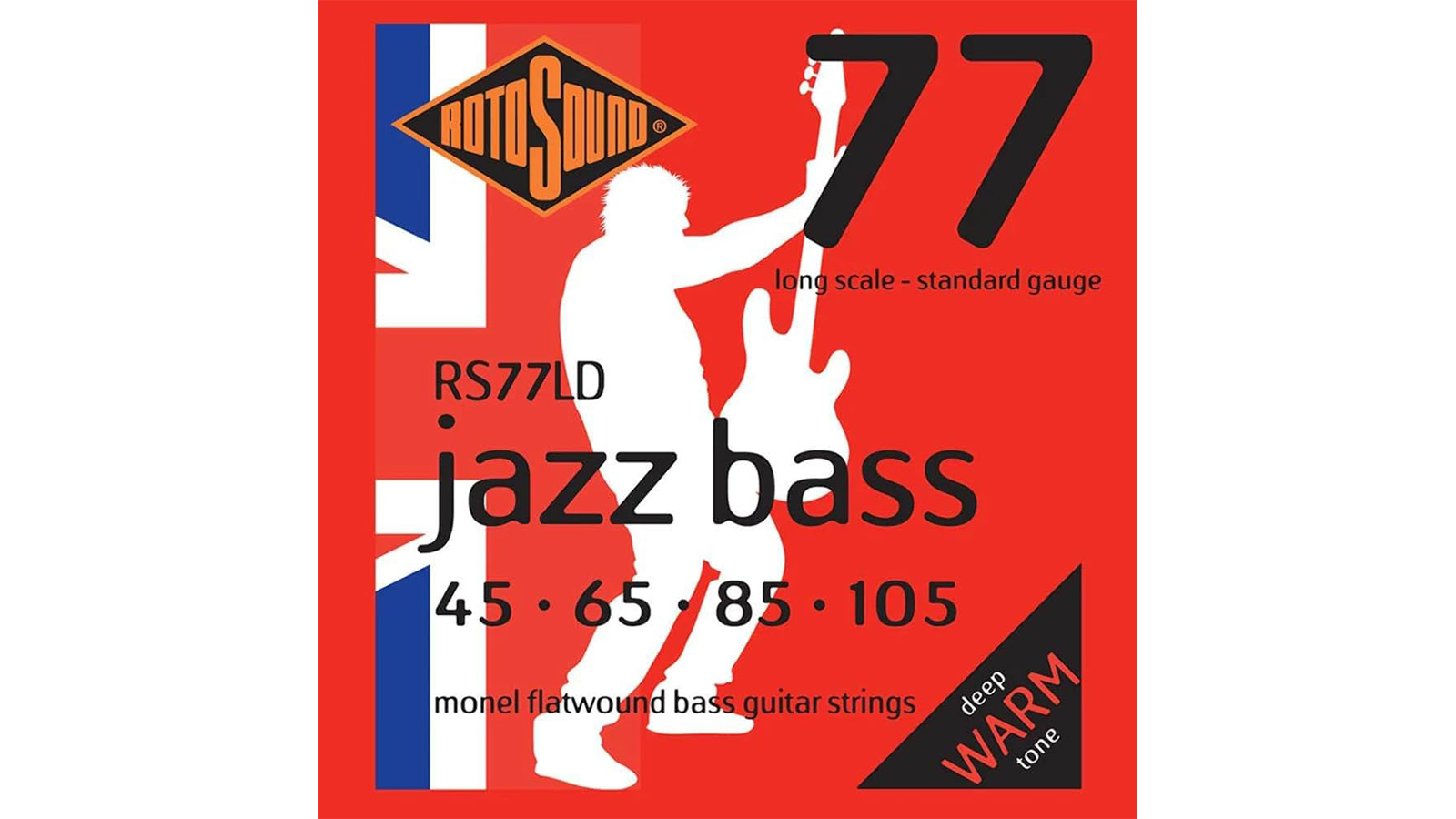
3. Rotosound Jazz Bass 77
Our expert review:
Specifications
Reasons to buy
Reasons to avoid
Rotosound’s Jazz Bass 77 strings have been used by the likes of Phil Lynott, Roger Waters, John Deacon, Glen Matlock, Sting and Dee Murray (Elton John), amongst many others. This esteemed selection of players alone should give you some idea of the kind of sounds you can dial in with a set of Rotosound’s classic bass strings.
Brighter and deeper than the traditionally warm sound of flatwounds, it's clear to me that the Roto 77s clearly have a sweet spot for ‘70s rock. But there’s enough juice at the frequency extremes for contemporary blues-rock and modern jazz too. A great balance of flatwound warmth with a nod to the more up-to-date styles.
Best all-rounder
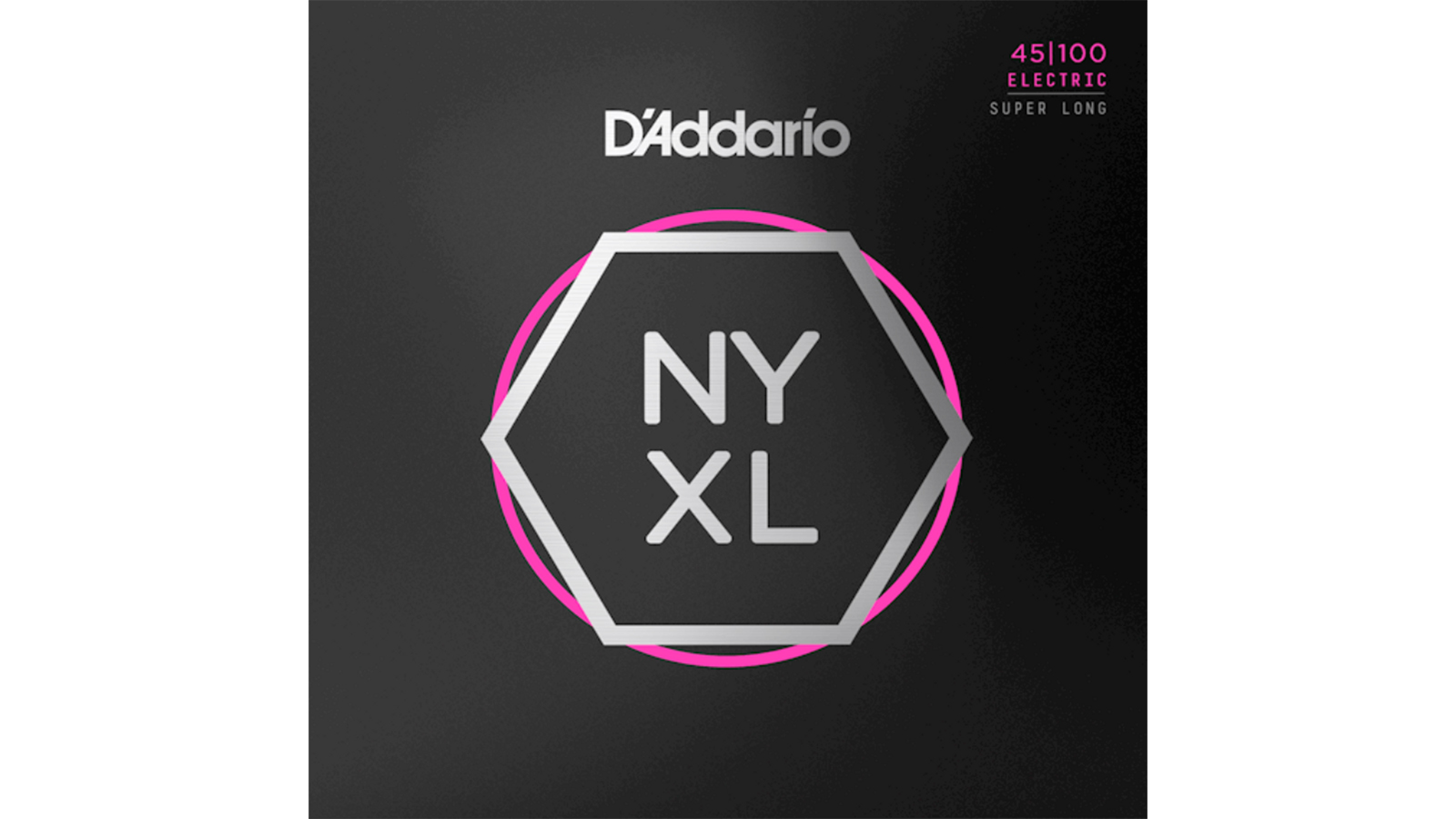
4. D’Addario NYXL Bass
Our expert review:
Specifications
Reasons to buy
Reasons to avoid
Designed as an all-round bass string with a balanced tone suitable for all styles, the NYXLs are competing in the fiercely fought mid-price market – but, crucially, at a higher price than the perennial Ernie Ball Slinkys.
Well, in my opinion, the D’ads may be just the job if you find Slinkys on the bright side – I found this set to be warmer from the get-go, without too much new string ‘zing’, but with plenty of midrange clarity and harmonic richness. Fairly smooth to the touch, I found finger noise to be fairly low too.
This generally balanced tone makes the NYXLs ideal for the five- or six-string bass player too, where players will be exploring the extended range.
Best flatwound
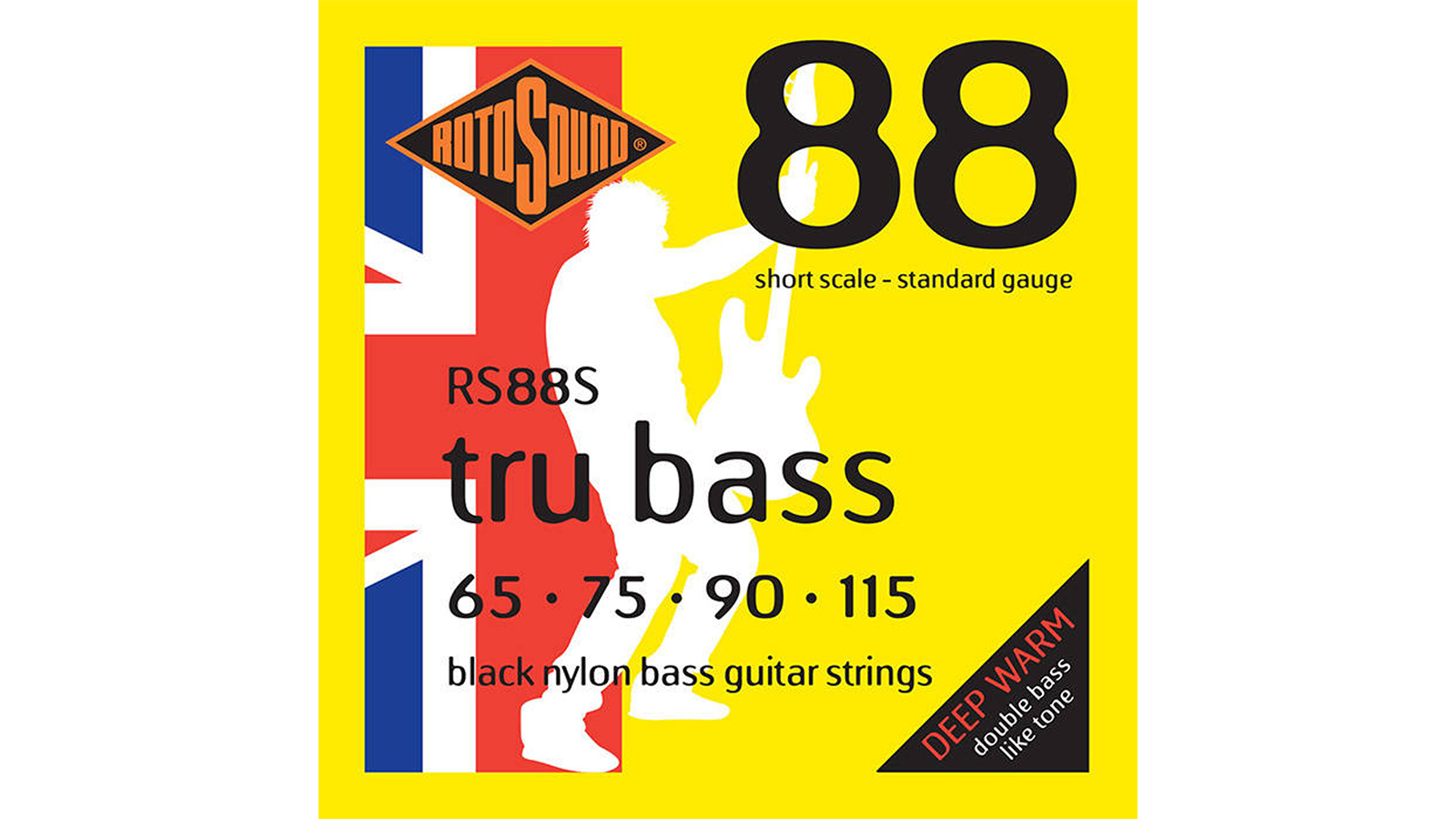
5. Rotosound Tru Bass 88
Our expert review:
Specifications
Reasons to buy
Reasons to avoid
For acoustic and upright style sounds from a regular electric bass you just can’t beat a set of tapewounds – and these Rotosounds are the real deal. Check out their signature tones on The Beatles’ Abbey Road/ (Paul McCartney), The Jam’s All Mod Cons (Bruce Foxton), David Bowie’s Diamond Dogs and Lou Reed’s Transformer (Herbie Flowers on both).
The Tru Bass 88’s metal core is wrapped in a flatwound nylon winding, which to my ear offers a deep warm tone with a buttery smooth feel, plus increased dynamic range and touch sensitivity that metal strings simply can’t match. I wouldn’t describe these as a versatile string but if it’s an acoustic vibe you’re after, it just has to be a set of tapewounds.
Best coated
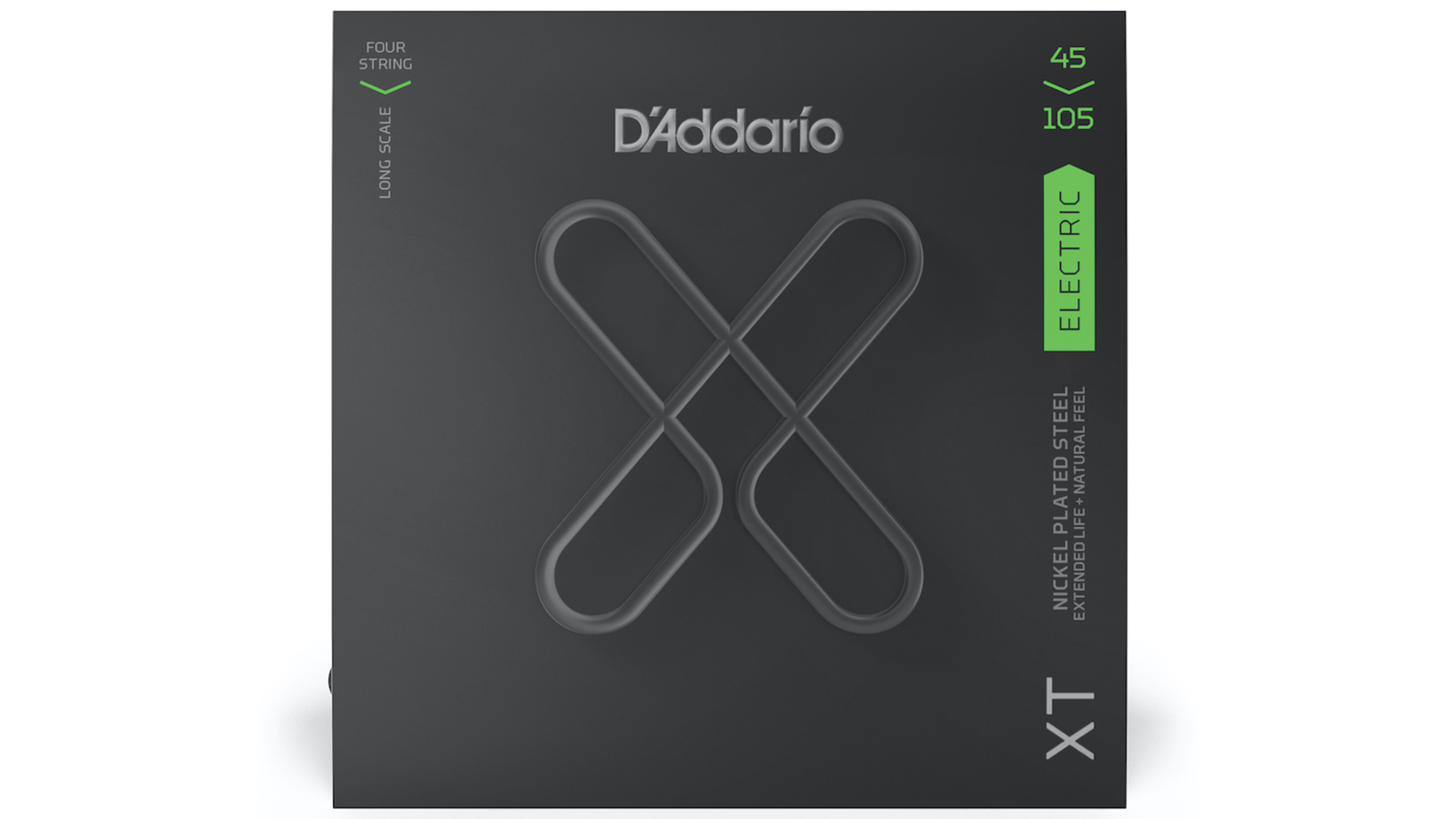
6. D’Addario XT Nickel Plated
Our expert review:
Specifications
Reasons to buy
Reasons to avoid
Coated strings keep that bright, ’fresh string’ sound for longer and mean you don’t have to replace them as often, so straight away, the D’Addario XTs have you covered if you’re after long-lasting bass strings. Some players are put off by the feel of coated strings. However, D’Addario has managed to pack in all the pros of coated strings whilst retaining most of the feel of uncoated strings. And this was my experience when testing them.
These nickel-plated steel bass strings provide a good balance of warmth and brightness, making them a great all-round string. For players that want to cover a lot of ground musically, or that play in multiple bands, then the D’Addario XTs are ideal. They sound new for longer, they’re resilient and they feel more like an uncoated string - what’s not to love?
Best clarity
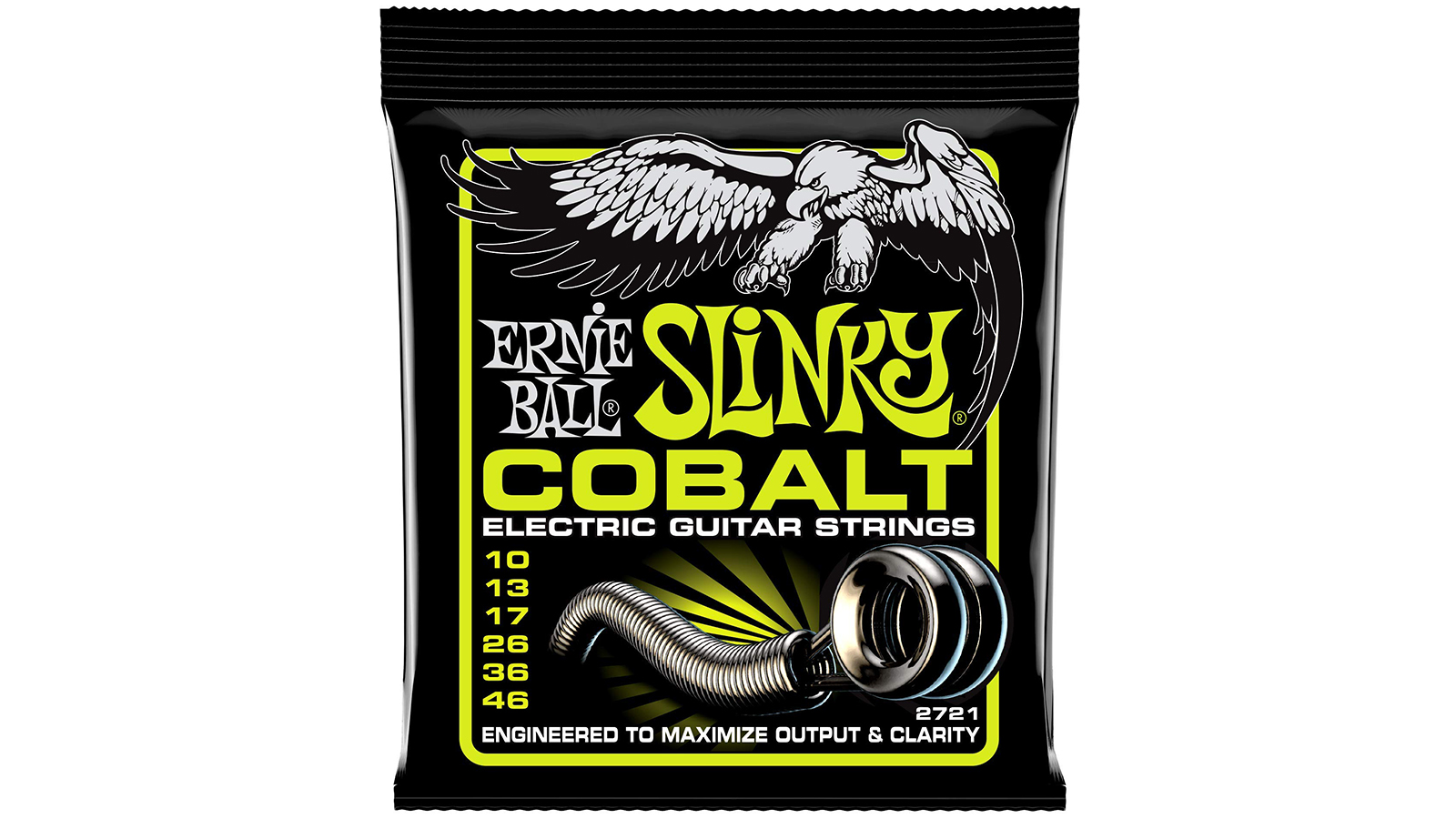
7. Ernie Ball Regular Slinky Cobalt
Our expert review:
Specifications
Reasons to buy
Reasons to avoid
Ernie Ball caused quite a stir when they released their Slinky Cobalts a few years ago. So do they live up to the hype? Well yes, by and large. If you want a high output string with deep lows and crystal clear highs with a slight scoop in the midrange, then the Cobalts are a great option. Prog and metal, funk and slap are all on the cards, but think contemporary rather than classic. I've found no vintage warmth here.
In my opinion, the Cobalts play well too. The iron/cobalt alloy feels smoother and, er, slinkier than anything short of a set of flatwounds, making for great progress across the fretboard. However, you do pay quite a price for Ernie Ball’s technological innovation – these are among the most expensive strings in our guide.
Best drop tuning
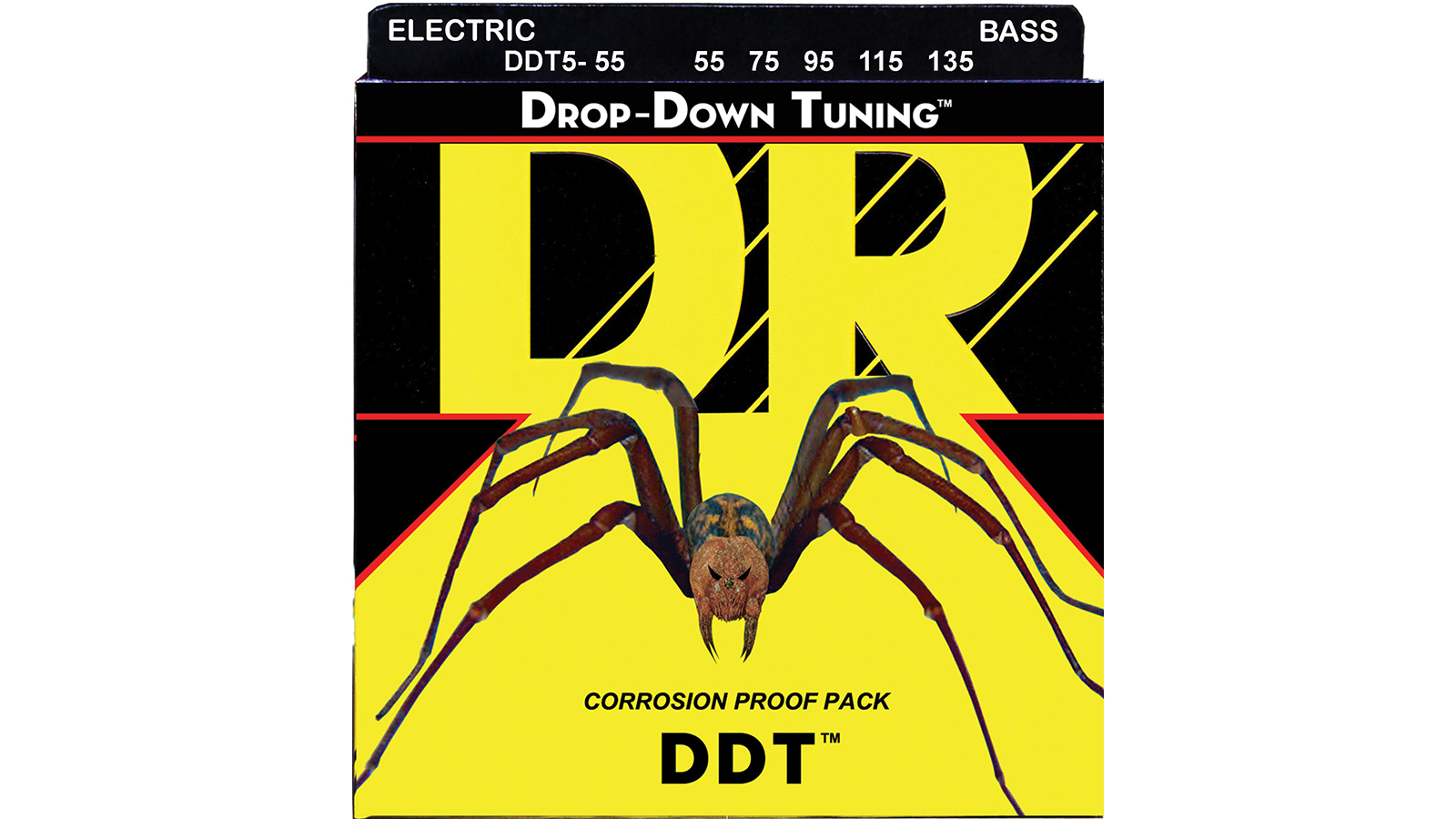
8. DR Strings DDT
Our expert review:
Specifications
Reasons to buy
Reasons to avoid
DR claim their DDT (Drop Down Tuning) strings maintain intonation and offer more natural string tension in drop tunings. Traditionally, you’d bung on a set of heavy gauge strings to drop tune, which, throwing up potential setup issues, isn’t always practical.
The idea here is that you don’t have to – a single set of DDT’s can handle a broad range of tunings, feeling neither too tight in standard or too floppy when drop-tuned.
Best acoustic
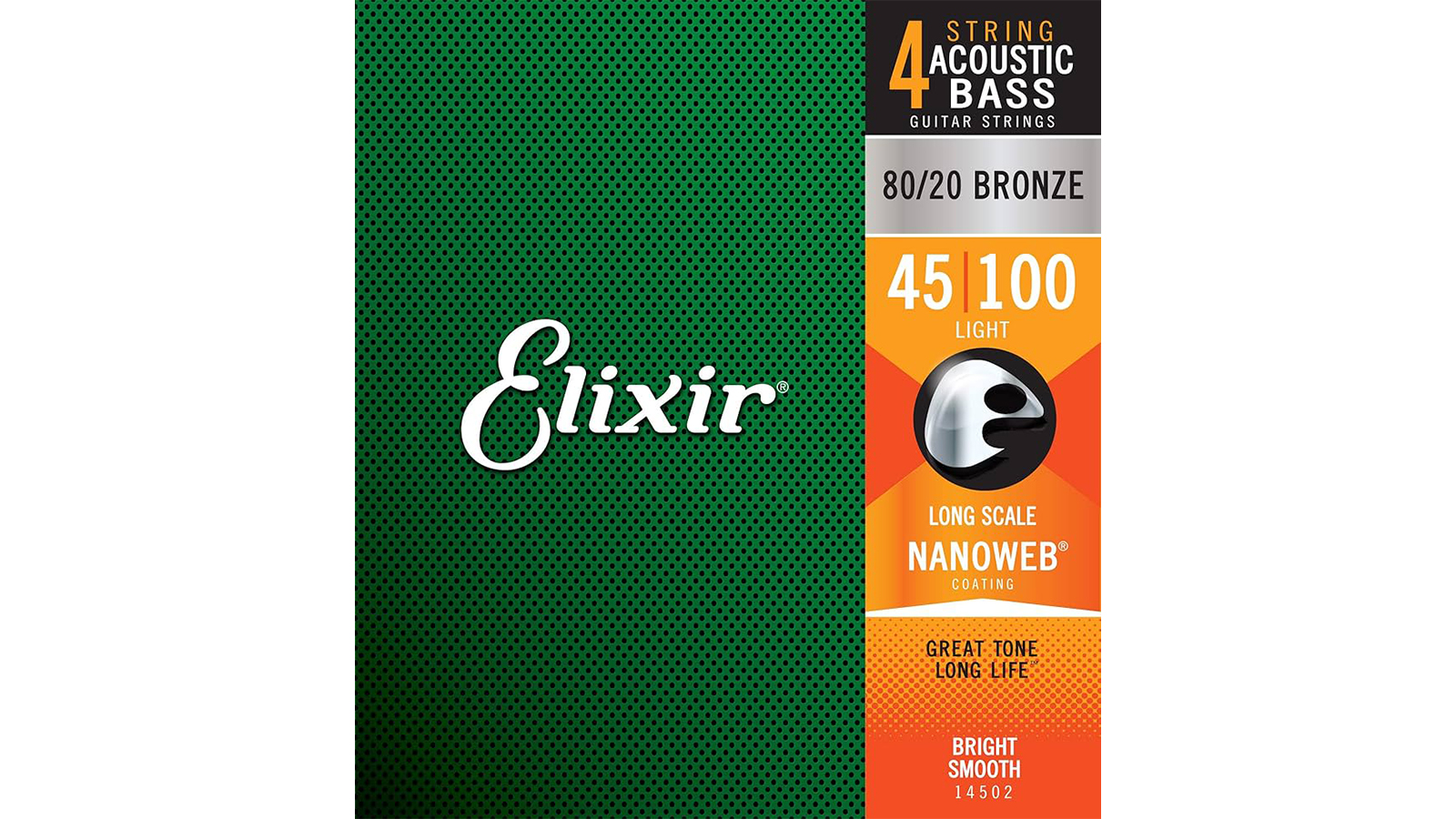
9. Elixir Nanoweb Acoustic
Our expert review:
Specifications
Reasons to buy
Reasons to avoid
Highly respected for their range of coated strings for standard six-string acoustic guitar, Elixir have brought their knowhow to acoustic bass.
I found there to be a crisp, lively tone from the 80/20 (copper/zinc) bronze strings – a tone that’ll be familiar to users of the company’s standard guitar sets.
Elixir’s ultra-thin coating protects the string, preventing grime accumulating between the windings – that means long life and lasting tone. Probably for the best when you’re looking at nearly 40 bucks a set!
Some might say these are over-bright, but I’d argue that’s a matter of taste.
Best short scale
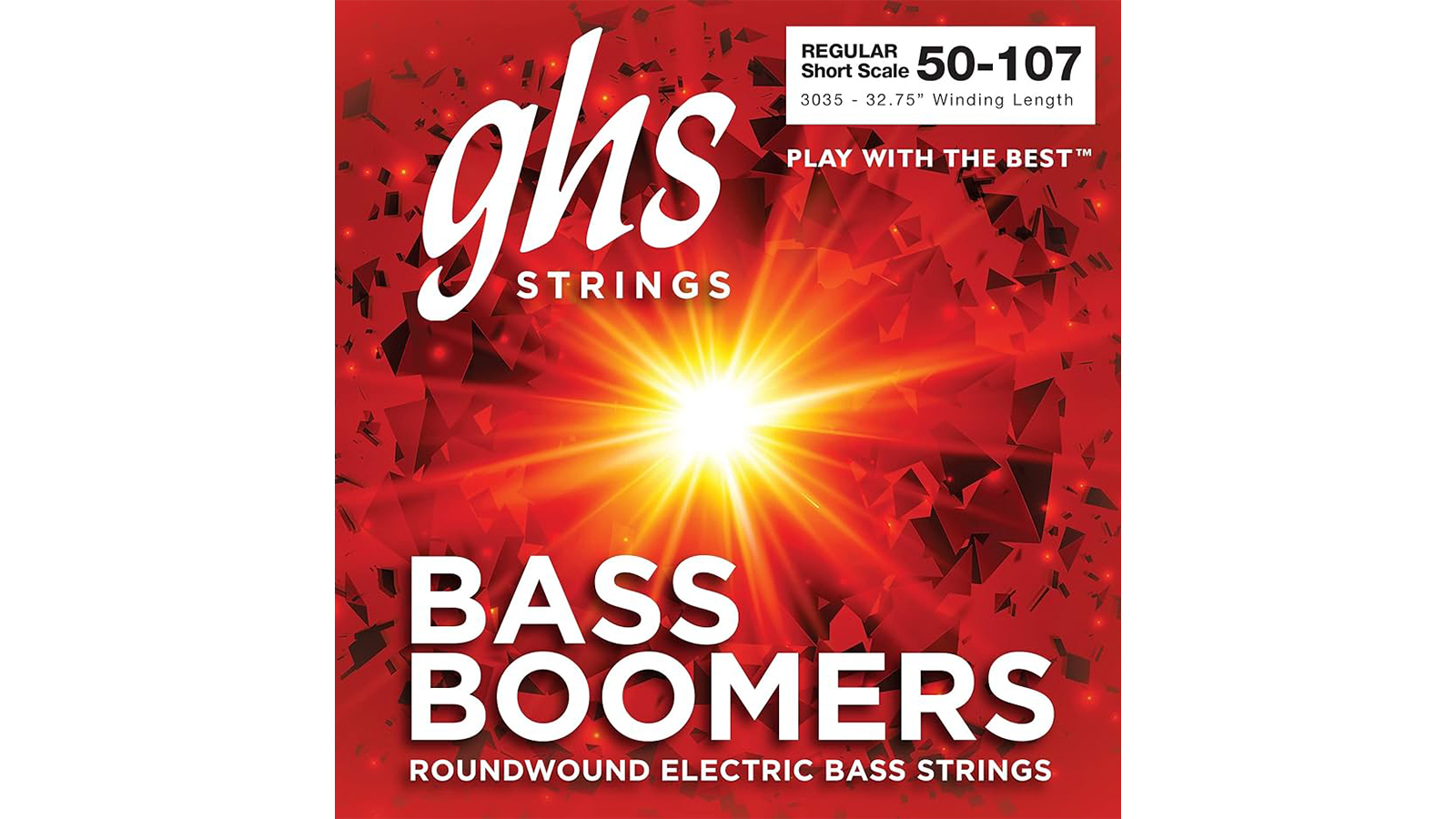
10. GHS Bass Boomers Short Scale
Our expert review:
Specifications
Reasons to buy
Reasons to avoid
There has been a recent surge in the popularity of short-scale bass guitars, largely driven by models like the Squier and Fender Mustang, as well as the Ibanez Talman. The comfort and playability of these instruments have made them favourites among modern players and beginners alike. But what are the best strings for 30- and 32-inch basses?
In my opinion, it’s the GHS Bass Boomers short-scale strings. Available in two gauges, 45-95 and 50-107, they offer both slightly lighter and heavier options. Both sets feel thicker than standard strings, which helps short-scale bass guitars deliver a much bigger sound than expected.
Tonally, the GHS Bass Boomers lean towards the brighter side, with a noticeable boost in the low-mid frequencies. Offering plenty of punch while remaining articulate, GHS has done a stellar job of bringing out the best in short-scale basses like the Mustang. These strings are highly versatile, making them a great choice for bassists who play across a range of genres.
FAQs
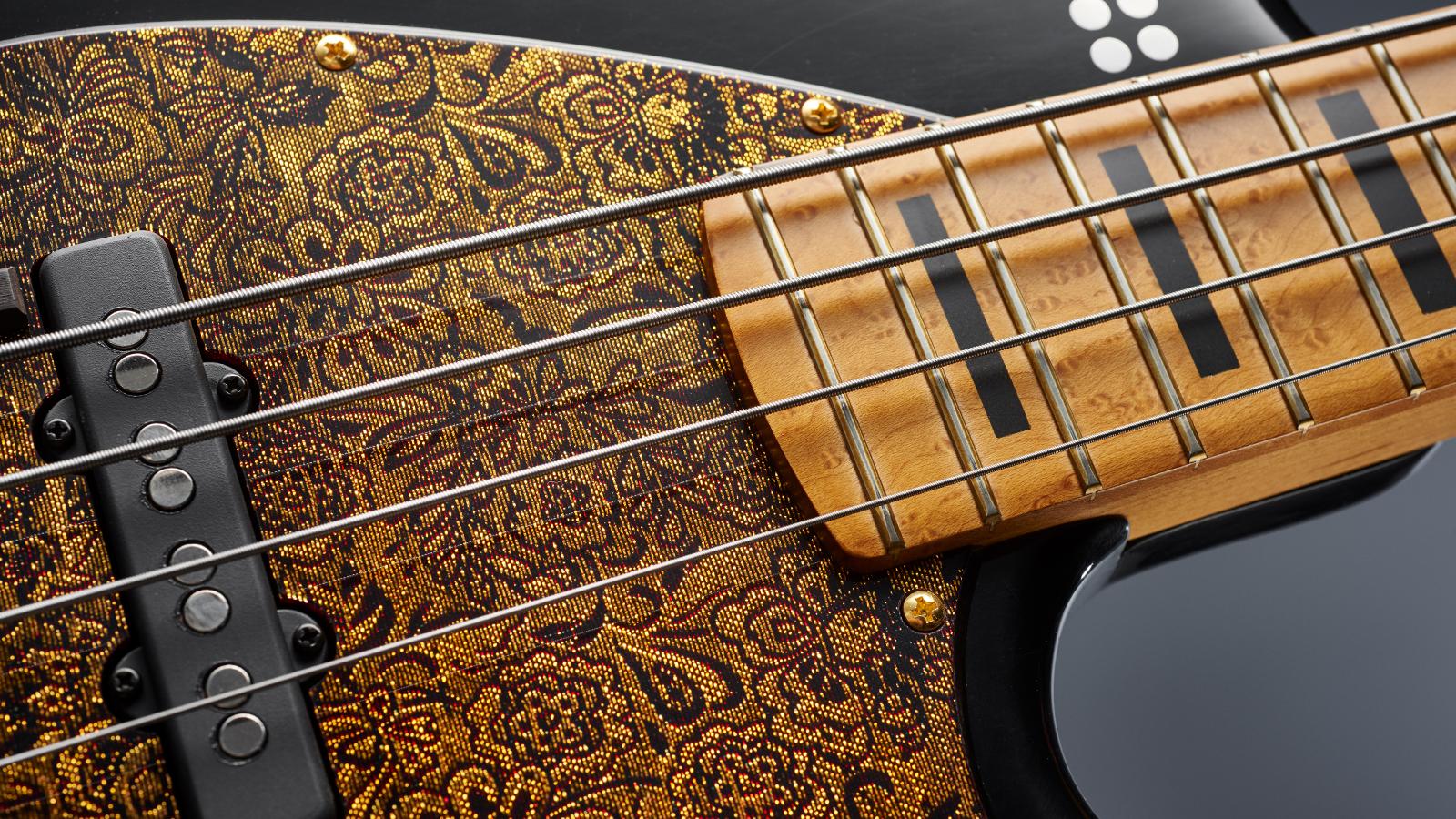
When looking for the best bass strings for you, there are a few things to consider. We’d argue that the most important factors are sound and playability. The material that the string is made from plays the biggest part in what they sound like. Different brands will have their own alloys made up of different ratios etc, but generally, the best bass strings tend to have a steel core with windings on the outside made from either stainless steel, or nickel plated steel.
What material of bass string should I use?
Stainless steel strings are usually fairly bright sounding. You still get a nice low end punch, but you get the added top end bite too. Stainless steel bass strings can be really good for more contemporary music, like modern rock, punk, pop and metal as you get that natural slight mid scoop.
You can get pure nickel wound bass strings too – these tend to be much warmer sounding, without too much low or top end, resulting in a mellower tone. What you’ll probably see more of is nickel plated steel strings. As you might imagine, these strike a really nice balance of warmth and brightness. If you’re going from Motown to pop punk all on one bass, then these strings will help you cover lots of ground.
String materials at a glance:
Nickel - Pure nickel strings have a warm sound, without too much treble bite or low-end. Perfect for the vintage tones of ‘50s/’60s pop, soul and rock.
Stainless steel - Tonally speaking the opposite of nickel strings, stainless steel is clear and bright, with clarity throughout the frequency range – great for modern sounds.
Nickel-plated steel - No surprises, nickel-plated steel offers a compromise between pure nickel or stainless steel. An all-round option for the bassist who plays a bit of everything.
Do I need roundwound or flatwound bass strings?
MusicRadar's got your back
Another decision to make in the search for the best bass strings is whether to go for roundwound, flatwound or tapewound – all impart their own characteristics on the sound and feel.
Roundwound - Roundwound bass strings usually sound more balanced – you get plenty of low end, some mids, but they can still be nice and bright. It depends on your personal preference, and there really is no right and wrong option, but rock, blues, pop and metal players would normally opt for roundwounds. You’ll also be able to feel the small ridges between the winds on the strings.
Flatwound - Flatwounds are mellower sounding, with less top end. You normally get a nice, warm, fat low end with some punchy lower mid-thump too. Jazz, R&B and soul players might opt for flatwounds to sit in the mix a little better. As their name suggests, they’re much flatter and smoother under the fingers, allowing you to glide between notes easily, without the string noise you’d get with roundwounds.
Tapewound - Tapewound strings tend to have a nylon coating over them, taking that mellow vintage tone one step further. If you want your electric bass to sound like an acoustic bass, tapewounds are the way to go; they are that mellow. They are incredibly smooth thanks to the nylon coating and you can achieve some fantastic glissando with tapewounds. Paul McCartney, Herbie Flowers and Graham Maby are perhaps the most popular tapewound players, if it’s good enough for them…
How to choose the right string gauge
The gauge is also important when finding the best bass strings for you. A thinner gauge might be better if you’re just starting out, as there’s physically less string to push down on. Funk bassists that slap and pop quite often go for a lighter/medium gauge too. If you’re down-tuning, then you’ll probably want to look at a heavier gauge bass string for better stability.
What's the difference between coated and uncoated strings?
We’re seeing more coated bass strings on the market now as well. These are like regular bass strings, but they have a thin coating around them that helps prevent things like dirt, sweat and dead skin from getting in between the winds. The result is they feel and sound fresher and last longer. They tend to be a little more expensive, but you can replace them less often.
How we choose products
Here at MusicRadar, we are experts in our field, with many years of playing, creating and product testing between us. We live and breathe everything music gear related, and we draw on this knowledge and experience of using products in live, recording and rehearsal scenarios when selecting the products for our guides.
When choosing what we believe to be the best bass strings available right now, we combine our hands-on experience with a range of products, alongside user reviews and testimonies. We also engage in lengthy discussions with our editorial colleagues to reach a consensus about the top products in any given category.
First and foremost, we are musicians, and we want other players to find the right product for them. So we take into careful consideration everything from budget to feature set, ease of use and durability.
Find out more about how we test music gear and services at MusicRadar.
Read more:
- Best bass amps: top choice amplification for bassists
- Smaller budget? Check out the best cheap bass guitars you can buy
- Get started with the best beginner bass guitars
- Get inspired with these gifts for guitarists and bass players
Want all the hottest music and gear news, reviews, deals, features and more, direct to your inbox? Sign up here.
Chris has been the Editor of Total Guitar magazine since 2020. Prior to that, he was at the helm of Total Guitar's world-class tab and tuition section for 12 years. He's a former guitar teacher with 35 years playing experience and he holds a degree in Philosophy & Popular Music. Chris has interviewed Brian May three times, Jimmy Page once, and Mark Knopfler zero times – something he desperately hopes to rectify as soon as possible.
